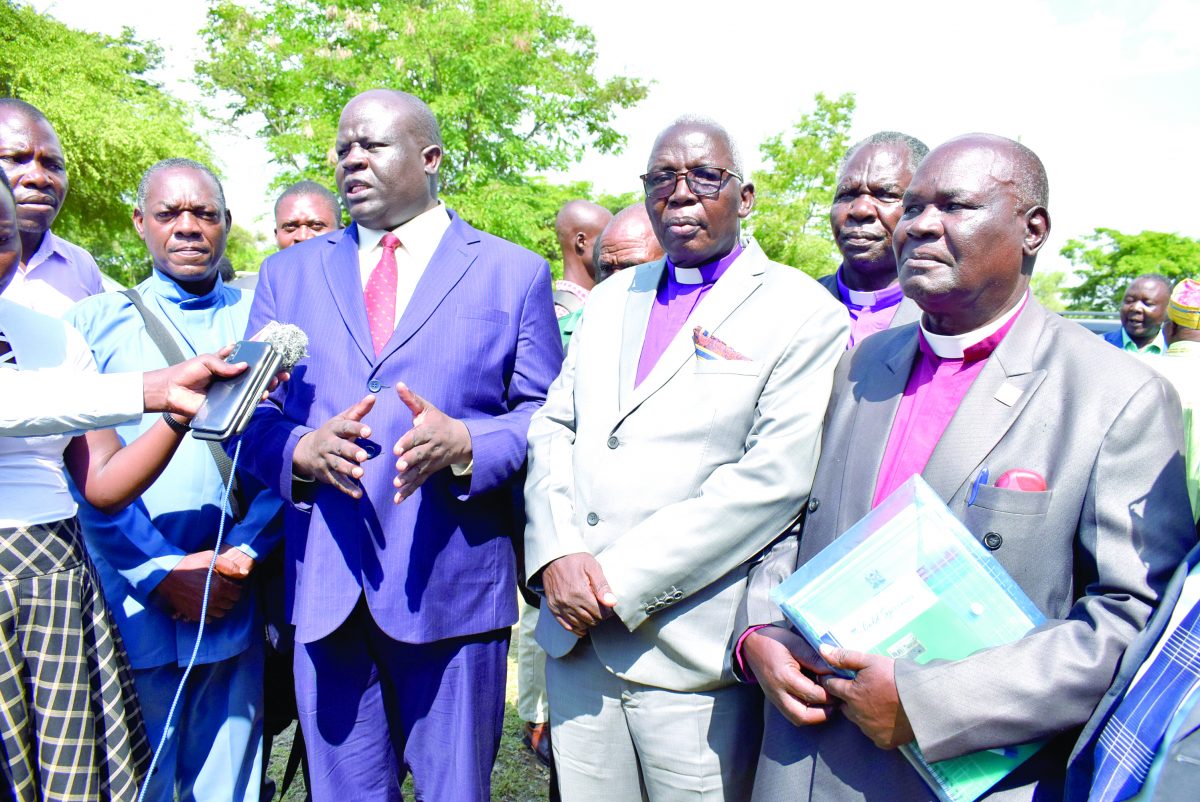Homa Bay clerics back efforts to regulate religious groups
By Noven.Owiti, June 21, 2023Religious leaders in Homa Bay County yesterday urged the government to strengthen existing umbrella bodies to enhance regulation of places of worship.
The clergy said they believe giving the religious institutions more powers and allowing them to come up with new laws will help to regulate religious practices.
President William Ruto recently constituted a taskforce to look into the modalities on which religious activities can be regulated without causing harm to society.
This followed a public outcry where some spiritual leaders were believed to be spreading questionable teachings.
Controversial preacher Paul Makenzie’s New Life Church has been accused of offering cult related teachings to his followers, leading to the death of more than 300 followers.
The Presidential Task Force on the Review of the Legal and Regulatory Framework Governing religious Organisations was in Homa Bay yesterday for public participation session. The task force is chaired by Rev Mutava Musyimi, a former MP for Mbeere.
Homa Bay church leaders welcomed the proposal that religious activities and ways of worship should be regulated, saying it would prevent cases of religious extremism and dangerous practices and doctrines.
The county’s Interfaith Council chairman Abrahams Odongo expressed concern that despite religious organisations having umbrella organisations, the institutions have not been effective in their mandate.
Among the religious bodies include the National Council of Churches of Kenya (NCCK), Supreme Council of Kenya Muslims (Supkem) and Kenya Conference of Catholic Bishops.
Speaking during the taskforce public participation at Kabunde Social Hall in Homa Bay town constituency on Monday, Bishop Odongo recommended that the government gives powers to the religious bodies to formulate a regulatory framework.
“We want the umbrella bodies to decentralise their activities to the grassroot for close monitoring and regulation. The institutions should also be permitted to deregister denominations founded on wrong doctrines,’’ Odongo said.
Currently, he observed, the government lacks proper mechanisms to find out when something wrong is happening in places of worship.
Bishop Odongo suggested that the governing institutions should review the laws to accommodate the emerging issues in the religious sector.
He noted that for religious groups to win the confidence of Kenyans, all places of worship must be registered under an umbrella body that is recognised by the government.
“A lot of transformation has taken place in the society and you still find that we use laws which were made in 1960s. We need changes to the laws to unsure proper governance,” he added.
Homa Bay Supkem secretary Nuhu Abdul Masud claimed some politicians were behind the challenges bedeviling places of worship.
Masud argued that most religious leaders tend to side with wealthy and influential politicians.
“Prayers have been commercialized. The law should disallow politics in places of worship,” Masud said.
Homa Bay Education Network coordinator Julius Omuga proposed the introduction of a State department that looks into how religious activities are conducted.
“We have religious leaders who mislead society because of their false teachings. There are churches which share places of worship with clubs and bars,’’ Omuga said.
Human rights activist Evans Oloo said suspects linked to the Shakahola cult deaths should be subjected to trial at the International Criminal Court (ICC).
Oloo also called for amendments in the Constitution to regulate religious activities.
The taskforce in Homa Bay was led by Catholic Archbishop Maurice Muhatia and lawyer Charles Kanjama.
Kanjama said the team split into four groups to enable them to reach a wider area in collecting views from religious leaders and other stakeholders on ways of streamlining worship in the country.
He observed that most religious leaders were concerned about cases where some clerics hide in religion to engage in questionable activities.
“Many Kenyans have died because of radicalisation and religious extremism. The taskforce is looking at ways to address this,” Kanjama said.
